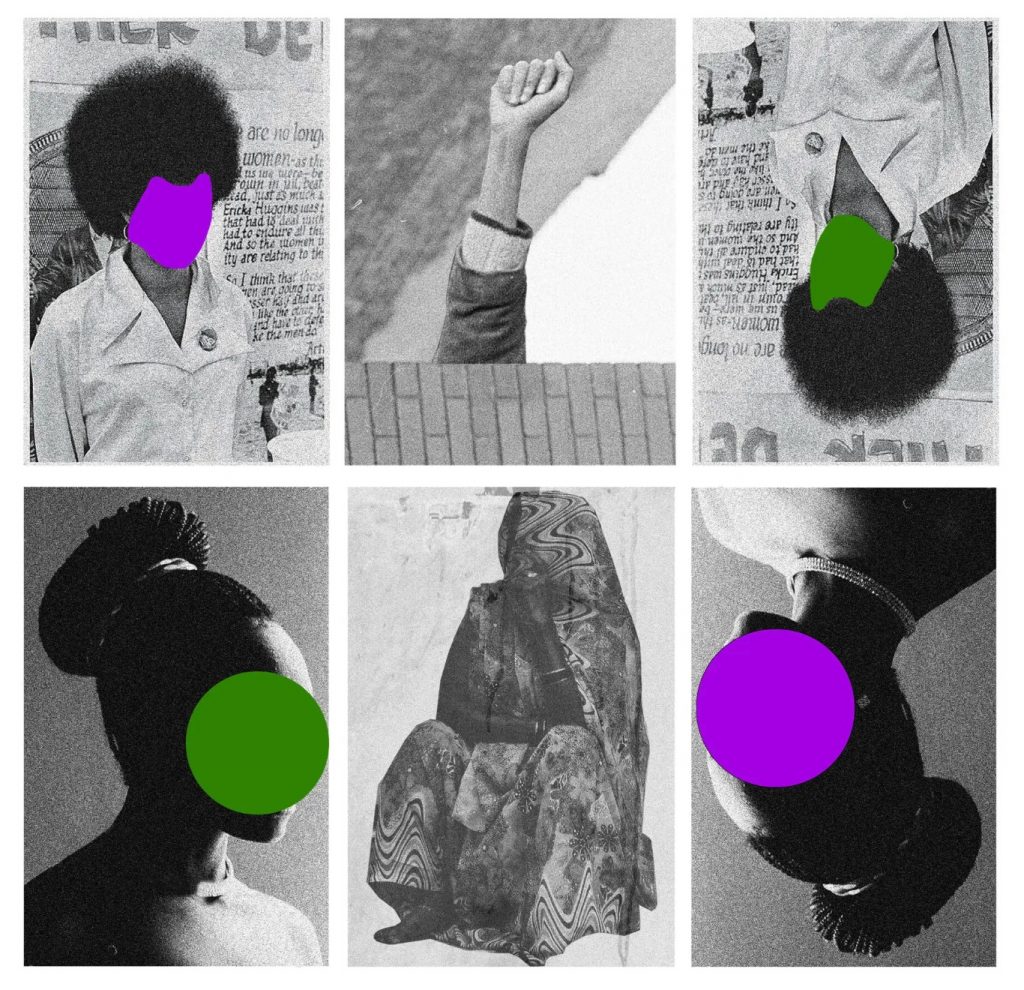Black women’s sexual subordination and forced pregnancies were foundational to slavery. If cotton was euphemistically king, Black women’s wealth-maximizing forced reproduction was queen.
Ending the forced sexual and reproductive servitude of Black girls and women was a critical part of the passage of the 13th and 14th Amendments. The overturning of Roe v. Wade reveals the Supreme Court’s neglectful reading of the amendments that abolished slavery and guaranteed all people equal protection under the law. It means the erasure of Black women from the Constitution.
Mandated, forced or compulsory pregnancy contravene enumerated rights in the Constitution, namely the 13th Amendment’s prohibition against involuntary servitude and protection of bodily autonomy, as well as the 14th Amendment’s defense of privacy and freedom,
This Supreme Court demonstrates a selective and opportunistic interpretation of the Constitution and legal history, which ignores the intent of the 13th and 14th Amendments, especially as related to Black women’s bodily autonomy, liberty and privacy which extended beyond freeing them from labor in cotton fields to shielding them from rape and forced reproduction. The horrors inflicted on Black women during slavery, especially sexual violations and forced pregnancies, have been all but wiped from cultural and legal memory. Ultimately, this failure disserves all women.
Overturning the right to abortion reveals the court’s indefensible disregard for the lives of women, girls and people capable of pregnancy, given the possible side effects and consequences of pregnancy, including gestational diabetes, pre-eclampsia, hemorrhaging, gestational hypertension, ectopic pregnancy and death. State-mandated pregnancy will exacerbate what are already alarming health and dignity harms, especially in states with horrific records of maternal mortality and morbidity.
To understand the gravity of what is at stake, one need only turn to the Supreme Court’s own recent history. In 2016, Justice Stephen Breyer noted in Whole Woman’s Health v. Hellerstedt that women are 14 times more likely to die by carrying a pregnancy to term than by having an abortion. The United States bears the chilling distinction of being the most dangerous place in the industrialized world to give birth, ranking 55th overall in the world.
Disproportionately, those who will suffer most are poor women, especially Black and brown women. Black women are over three times as likely to die by carrying a pregnancy to term than white women. In Mississippi, a Black woman is 118 times as likely to die by carrying a pregnancy to term than by having an abortion. According to the Mississippi Maternal Mortality Report, from 2013 to 2016, Black women accounted for “nearly 80 percent of pregnancy-related cardiac deaths” in that state. At present, there is only one clinic in the entire state of Mississippi to serve hundreds of thousands of women that might need to terminate a pregnancy.
In 1942, in a unanimous decision delivered by Justice William Douglas in Skinner v. Oklahoma, the court explained that “This case touches a sensitive and important area of human rights,” because Oklahoma sought to sterilize a man who committed petty crimes, including stealing chickens, under its “Habitual Criminal Sterilization Act.”
Justice Douglas wrote that reproductive autonomy and privacy, associated with “marriage and procreation” are “fundamental,” and a state’s interference with such rights “may have subtle, far-reaching and devastating effects.” The justices were concerned about the inequality at the heart of the law, which singled out poor and vulnerable classes of American men.
Now, 80 years later, Mississippi has already made a “clear, pointed, unmistakable discrimination,” as if it has “selected a particular race or nationality for oppressive treatment,” which the court specifically struck down and condemned in Skinner.
What today’s Supreme Court strategically overlooks, legal history reminds us with stunning clarity, specifically the terrifying practices of American slavery, including the stalking, kidnapping, confinement, coercion, rape and torture of Black women and girls. In a commentary reprinted in The New York Times on Jan. 18, 1860, slavery was described as an enterprise that “treats” a Black person “as a chattel, breeds from him with as little regard for marriage ties as if he were an animal, is a moral outlaw.”
Such observations were hardly unique or rare; the Library of Congress offers a comprehensive collection of newspapers, almanacs, daguerreotypes, illustrations, and other materials that comprise the “African-American Mosaic: Influence of Prominent Abolitionists.” Laws that date back to the 1600s expose the sexual depravity and inhumanity of American slavery. In 1662, the Virginia Grand Assembly enacted one of its first “slave laws” to settle this point, expressing, “Whereas some doubts have arisen whether children got by any Englishman upon a Negro woman should be slave or free, be it therefore enacted and declared by this present Grand Assembly, that all children born in this country shall be held bond or free only according to the condition of the mother.”
Thomas Jefferson kept copious receipts and documents related to the births of enslaved children at his Monticello plantation, including those who were ultimately discovered to be his own. Not surprising, at the heart of abolishing slavery and involuntary servitude in the 13th Amendment was the forced sexual and reproductive servitude of Black girls and women. Senator Charles Sumner of Massachusetts, who led the effort to prohibit slavery and enact the 13th Amendment, was nearly beaten to death in the halls of Congress two days after giving a speech that included the condemning of the culture of sexual violence that dominated slavery.
Black women also spoke out about their reproductive bondage. In 1851, in her compelling speech known as “Ain’t I a Woman,” Sojourner Truth implored the crowd of men and women gathered at the Women’s Rights Convention in Akron, Ohio, to understand the gravity and depravity of American slavery on Black women’s reproductive autonomy and privacy. Reported by newspapers and recorded through history, Ms. Truth stated that she had borne 13 children and seen nearly each one ripped from her arms, with no appeal to law or courts. Wasn’t she a woman, too? By the accounts of those gathered, including famed feminist abolitionist Frances Gage, the room stood still and then erupted in applause.
Similarly, in “Incidents In The Life of A Slave Girl,” published in 1861, Harriet Jacobs describes the herculean efforts made to avoid the inevitable sexual assault and rape by her captor. She wrote, “I saw a man forty years my senior daily violating the most sacred commandments of nature. He told me I was his property; that I must be subject to his will in all things.”
And yet, slavery’s vestiges persisted in Southern states, including within the domains of privacy, child rearing and marriage. The Bureau of Refugees, Freedmen, and Abandoned Lands, better known as the “Freedmen’s Bureau,” founded March 1865, collected letters written by Black mothers despairing over vile “apprenticeships” whereby their children were kidnapped and returned to bondage under the guise of traineeships.
Congress followed in 1868 with the ratification of the 14th Amendment, which further secured the interests of Black women who had been subjected to cruelties inflicted on them physically, reproductively, and psychologically.
The 14th Amendment opens with the sentence, “All persons born or naturalized in the United States … are citizens of the United States and of the State wherein they reside” and as such would be protected by the laws of the United States. Such language applied to infants born to Black women, changing the provisions of law that had long denied Black children citizenship and the protection of laws. Lawmakers were understandably concerned about overturning states laws that had denied children the dignity of personhood.
Justice Samuel Alito’s claim, that there is no enumeration and original meaning in the Constitution related to involuntary sexual subordination and reproduction, misreads and misunderstands American slavery, the social conditions of that enterprise and legal history. It misinterprets how slavery was abolished, ignores the deliberation and debates within Congress, and craftily renders Black women and their bondage invisible.
It is no hyperbole to say that the Supreme Court’s decision in the Dobbs case is in league with some of the darkest rulings — Plessy v. Ferguson, which opened the floodgates to “separate but equal” laws that ushered in Jim Crow, and Buck v. Bell, which sanctioned states’ eugenics laws permitting forced sterilization of poor women.
The court’s central role — and sadly its complicity — in the harms that predictably will result from this decision cannot be overlooked. The court will be giving its imprimatur to states set to “trigger” laws that will criminally and civilly punish girls and women who want and need to end pregnancies, including victims of rape and incest, while ignoring the deadly traps in which most of those states have historically placed Black women.
Michele Goodwin is a chancellor’s professor of law at the University of California, Irvine, and author of “Policing The Womb: Invisible Women and the Criminalization of Motherhood.”




What’s unConstitutional, undemocratic, and unAmerican is forcing the pro-abortion position on Americans by Federal government fiat. Take your argument to the States and let people vote for it if you feel that strongly.
Although I can appreciate Michele Goodwin’s anger regarding the history of slavery in this country, in general and as to some details in particular, in this article she comes across as ‘full of sound and fury, signifying nothing’ but the desire to rant regarding this issue. She fails totally to make her case, that abortion is somehow a federal issue. That take on the matter was conceived in duplicity, and that it has taken this long to correct it is a sign of how far off the rule of law we have gotten in this country, for long enough.
As to ‘”this country”: It is a federal constitutional republic. The federal government is one of LIMITED and DELEGATED powers – “few and defined,” in the rather authoritative words of the man fairly caed the Father of the Constitution, James Madison, and as underscored in the 9th and 10th Amendments. It deals mostly with interstate and international issues, and those are its primary objective. The 14th Amendment refers to some specific issues as being proscribed to the States; it did not turn this country wholesale into one with/of a centralized form of government. The social/domestic issue of abortion was and is still a matter for the individual States to determine, in our federal form of government. Full.
Stop.
Despite some hyperbole in this article, Stan, the 14th Amendment is clear that no one –not even the states–can take away “life, liberty, or property ” without due process. Technically, everyone forced to be vaccinated should be brought to a court where a determination can be made that he or she needs to be vaccinated. (In some nations such as Australia, this is technically required, although it has not been enforced.) In the case of abortion, every woman who is being denied an abortion should be brought to court to adjudicate whether she has the right to one since every pregnancy is, in principle, a threat to one’s health or life (the risk maternal mortality is 2/10,000 but rises to 1/1000 for mothers older than 40) and maternal morbidity is even greater). Of course, none of this could happen because it would overwhelm the legal system. The only way one could justify limiting abortion is if the fertilized egg is immediately considered a person, but where in the Constitution is that right bestowed? In fact, common law at the time of its adoption clearly dictated that a fetus was NOT A person until “quickening” (essentially viability) occurred at 20-25 weeks.
The strange thing about the Dobbs decision was that it went well beyond the Mississippi case at hand–which was only to restrict abortion to 15 weeks, when over 90% of all abortions have normally occurred–and its rationale seemed very insulting to previous courts that formulated and repeatedly upheld Roe. And it seems to imply “contraceptive” methods such as the morning-after pill and IUDs (which prevent fertilized eggs from being implanted) are also subject to bans. One things is for sure–the Democrats were headed for one of the largest defeats in American political history in November and this decision has breathed a little bit of life back into them.